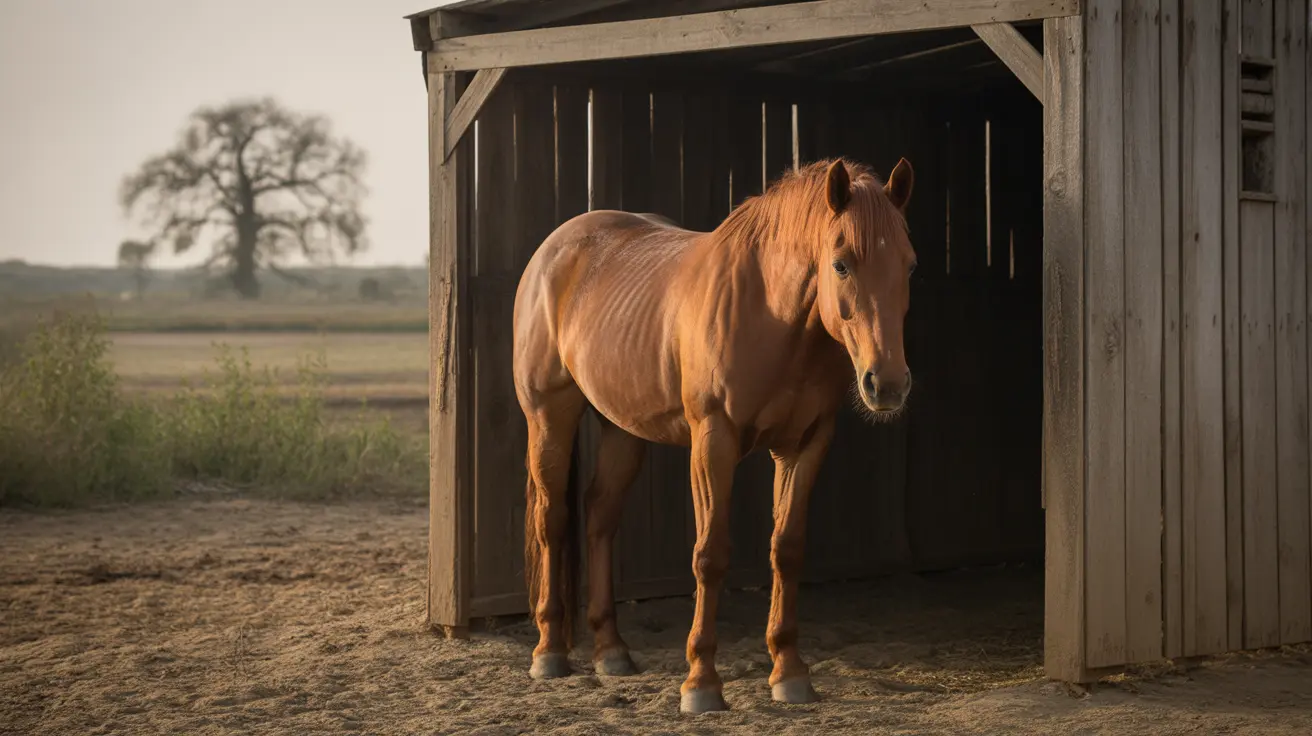A concerning case of animal cruelty in North Carolina has emerged as authorities arrested a Lenoir resident for the third time this year following the discovery of a severely malnourished horse. The incident highlights the ongoing challenges faced by animal welfare authorities in preventing repeat offenses and protecting vulnerable animals.
The case, which occurred in Lenoir, marks the suspect's third animal cruelty-related arrest within a seven-month period in 2025. The discovery of a neglected horse, found tied up and showing clear signs of malnutrition, prompted swift action from local law enforcement.
Signs of Animal Neglect and Enforcement Response
The recent arrest underscores the critical importance of recognizing and reporting signs of animal neglect. In this instance, the horse's condition displayed obvious indicators of inadequate care, including visible malnutrition and improper confinement.
Identifying Animal Welfare Concerns
Animal welfare experts emphasize that proper horse care requires adequate nutrition, appropriate shelter, and regular veterinary attention. When these basic needs are not met, it can quickly lead to severe health complications and suffering for the animal.
Caring for Starving Horses: Critical Considerations
The rehabilitation of malnourished horses requires careful attention and professional veterinary oversight. Proper recovery protocols must be followed to avoid potentially dangerous complications like refeeding syndrome, which can occur when nutrition is reintroduced too quickly.
Horse Refeeding Syndrome Prevention
- Gradual reintroduction of appropriate feed
- Regular monitoring of vital signs and health markers
- Professional veterinary supervision throughout recovery
Animal Care Enforcement and Legal Framework
Under North Carolina's animal welfare laws, cases of repeated animal cruelty face increasingly severe penalties. The state's legal system aims to prevent future instances of abuse through both punitive measures and mandatory interventions.
Senate Bill 573 and Animal Welfare Reforms
Recent legislative updates in North Carolina have strengthened protections for animals and enhanced consequences for repeat offenders. These reforms reflect growing awareness of the connection between animal cruelty and broader public safety concerns.
Frequently Asked Questions
What are the signs of animal cruelty or neglect I should look for in horses and other pets?
Signs include extreme thinness or emaciation, lack of access to food, water, or shelter, untreated injuries, matted fur or poor grooming, confined animals in unsafe or unsanitary conditions, and a large number of animals without proper care.
How is animal cruelty penalized under North Carolina law, especially for repeat offenders?
North Carolina law classifies neglect as a misdemeanor with penalties up to 45 days in jail or fines. Felony animal cruelty, such as causing death through neglect, results in Class H felony charges with 5–6 months imprisonment or more for repeat offenders. Courts can also prohibit future animal ownership and mandate psychological counseling.
What steps can I take if I suspect someone is mistreating or hoarding animals like horses or pets?
You should report your concerns promptly to local animal control, law enforcement, or cruelty hotlines. Providing detailed information about the conditions and number of animals can help authorities investigate and intervene effectively.
Conclusion
This case serves as a reminder of the importance of vigilance in identifying and reporting animal neglect. Community members play a crucial role in preventing animal cruelty by staying alert to warning signs and promptly reporting concerns to appropriate authorities. The ongoing enforcement of animal welfare laws, combined with public awareness and action, remains essential in protecting vulnerable animals from neglect and abuse.






